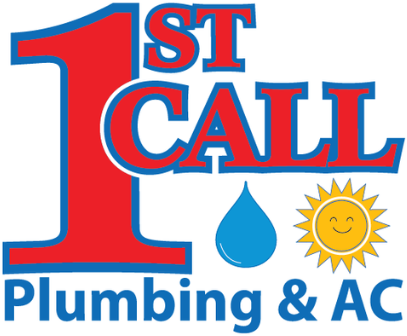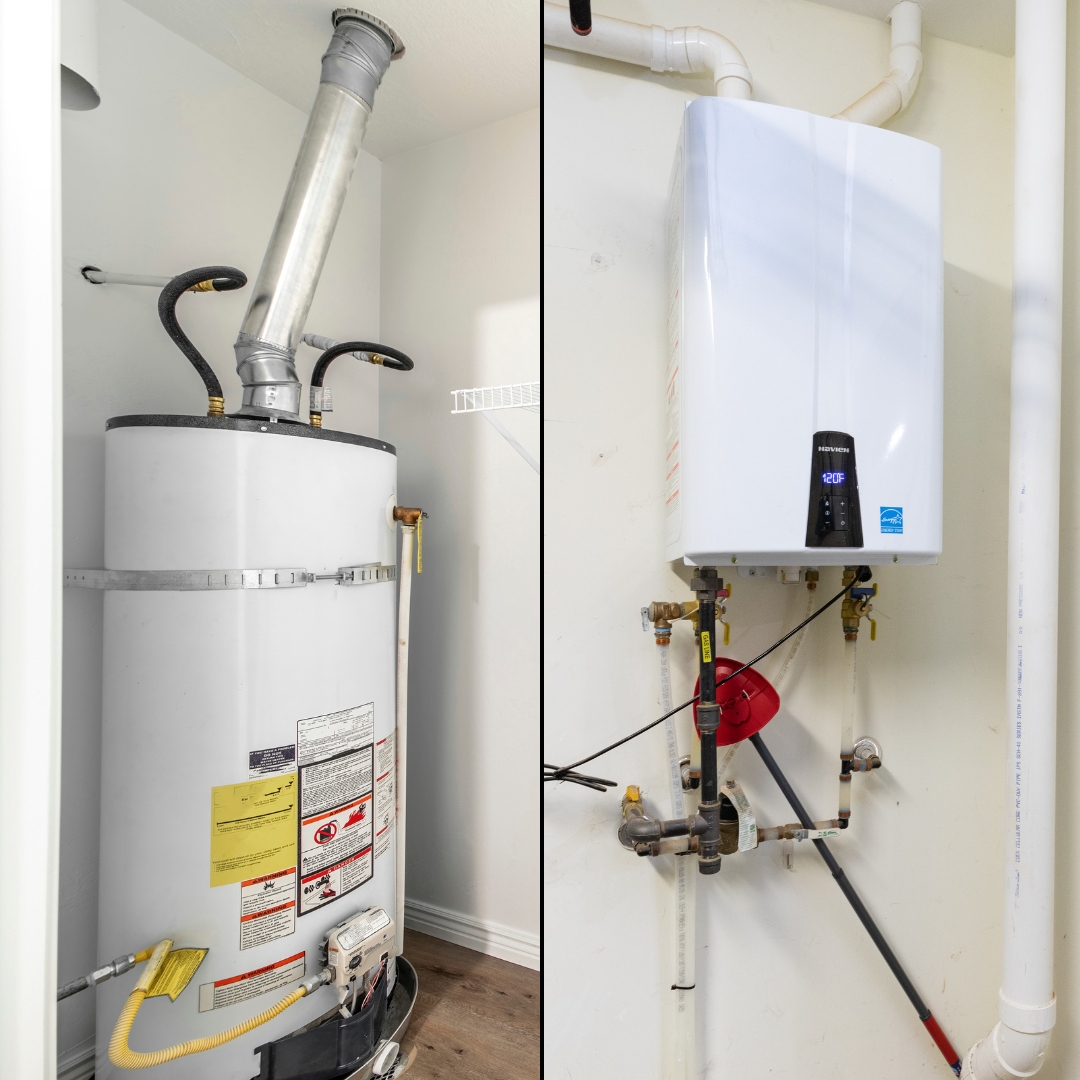Imagine this: it’s the end of a long day, and you’re ready to unwind with a nice, hot shower.
You turn the tap, expecting the usual warmth, only to be met with lukewarm water—or worse, nothing but cold.
Sound familiar?
Your water heater, often the unsung hero of your home, may be sending you signals it’s on its last leg.
For many homeowners, the first sign of a water heater problem comes as a surprise, but there are often early indicators that can help you avoid sudden breakdowns.
By understanding these common signs your water heater may need replacement, you can make proactive choices that save money, reduce hassle, and even lower energy costs in the long run.
In this guide, we’ll cover everything you need to know to identify water heater replacement signs, understand when to replace a water heater, and decide whether a new unit is worth the investment. Keep reading to uncover these key insights—you’ll never be caught off guard by an aging water heater again!
1. Understanding the Typical Lifespan of a Water Heater
The lifespan of your water heater can vary widely depending on its type, how often it’s used, and how well it’s maintained.
On average, a traditional tank-style water heater can last between 10-15 years, while tankless models, due to their efficient design, can last upwards of 20 years.
What Factors Impact Your Water Heater’s Lifespan?
• Usage Frequency: Heavy use in a larger household will naturally wear down a water heater faster than in a smaller household.
• Water Quality: Hard water, which contains a higher concentration of minerals like calcium and magnesium, can lead to faster sediment buildup within the tank, reducing efficiency and lifespan.
• Maintenance Practices: Regular maintenance, such as flushing the tank to remove sediment or inspecting the anode rod, significantly prolongs the life of your water heater.
How to Determine Your Water Heater’s Age
If you’ve moved into a home and aren’t sure about the water heater’s age, start by locating the serial number, which is usually found on a sticker on the heater itself.
Each manufacturer has a unique way of encoding the date, so refer to the brand’s website or user manual to decode it.
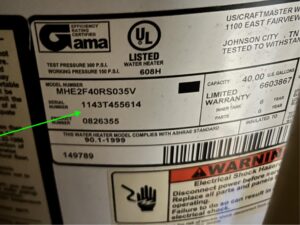
![]()
2. The Most Common Signs Your Water Heater Needs Replacement
1. Your Unit Is Showing Age-Related Issues
Older water heaters may continue to function, but they become far less efficient as they age. Water heaters over 10 years old are more likely to have trouble keeping up with demand, run inefficiently, or experience frequent breakdowns. Upgrading to a new model can reduce energy costs and offer advanced safety features.
2. Rusty or Discolored Water
Rusty water is a common indicator that your water heater tank is corroding from the inside. Corrosion not only affects water quality but can also lead to leaks. If you notice rust coming from hot water taps, it’s a good sign the water heater needs attention and may require replacement.
Pro Tip: If you’re not sure whether the rust is from the tank, try draining a few gallons of water directly from the heater. If the water runs rusty from the drain, your tank is likely corroded.
Image Idea: Side-by-side comparison of clean vs. rusty water samples, highlighting the rusty color often associated with tank corrosion.
3. Insufficient Hot Water
If your showers are getting colder faster or you’re constantly running out of hot water, this could be a sign of sediment buildup inside the tank. Over time, minerals settle at the bottom, creating a barrier between the heating element and the water. The result? A less efficient system that can no longer provide consistent hot water.
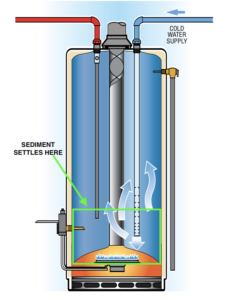
4. Unusual Noises Coming from the Heater
Hearing a rumbling, banging, or popping noise from your water heater? These sounds are often due to hardened sediment shifting within the tank. The sediment buildup causes the heater to overheat, making noises that signal the unit is struggling to function.
5. Leaks or Pooling Water Around the Heater
Any water pooling around the base of your water heater could be a sign of internal tank failure. Minor leaks may be fixable if they’re due to loose connections, but a leaking tank generally requires full replacement to prevent significant water damage.
3. Why Replacement May Be a Smarter Investment Than Repair
Replacing a water heater can seem like a big expense, but in many cases, it’s the better investment compared to repeated repairs on an aging unit. Here’s why:
1. Cost of Repair vs. Replacement
While repairs are typically less expensive than a new heater, they can quickly add up. For example, repairing an older unit may temporarily resolve minor leaks, but if these issues are frequent, the cost of continuous repairs could soon exceed that of a replacement.
2. Energy Efficiency and Savings Over Time
Modern water heaters are designed with energy efficiency in mind. Many newer models are ENERGY STAR® certified, which means they use significantly less energy than older units. Over the heater’s lifespan, these savings can more than justify the initial investment.
Fun Fact: According to the U.S. Department of Energy, heating water accounts for about 18% of a home’s energy use. Replacing an old water heater with an energy-efficient model could reduce energy bills by 10-20%.
Image Idea: Comparison chart showcasing potential energy savings of a new ENERGY STAR® water heater vs. a typical older model.
3. Improved Safety Features
Newer water heaters often come with safety advancements such as automatic shutoff in case of overheating or leak detection sensors. These features protect your home and provide peace of mind, especially for families with young children or elderly residents.
4. Choosing the Right Replacement Water Heater
Once you’ve decided to replace your water heater, the next step is selecting the right type and size for your household. Here’s what you need to know:
Tank vs. Tankless Water Heaters: Which Is Right for You?
• Tank Heaters: Store and heat a set amount of water, ideal for larger households with high hot water demand.
• Tankless Heaters: Heat water on demand, providing a limitless supply without the need for a large storage tank. These units are highly energy-efficient and are best suited for homes with moderate hot water use.
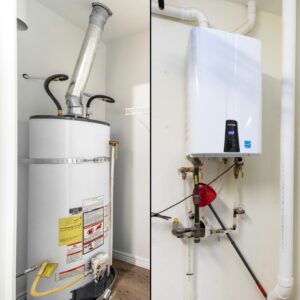
Size Matters: Choosing the Right Capacity
For tank water heaters, the ideal size typically depends on household size:
• 1-2 people: 30-40 gallons
• 3-4 people: 40-50 gallons
• 5 or more people: 50+ gallons
For tankless water heaters, consider factors like flow rate and peak demand to ensure a continuous supply.
5. Maintenance Tips to Extend Your New Heater’s Life
Replacing your water heater is a significant investment, so it makes sense to keep it in optimal condition. Here are maintenance tips to extend the lifespan of your new unit:
Flush the Tank Annually
Sediment buildup can decrease efficiency and lead to more frequent breakdowns. By flushing the tank annually, you remove sediment and improve the heater’s efficiency.
Inspect the Anode Rod Regularly
The anode rod, a “sacrificial” metal rod, attracts corrosive elements that would otherwise rust the tank. Checking and replacing it every 2-3 years helps prevent internal corrosion.
Pro Tip: When replacing the anode rod, use a high-quality magnesium rod, which is more effective at preventing rust than aluminum alternatives.
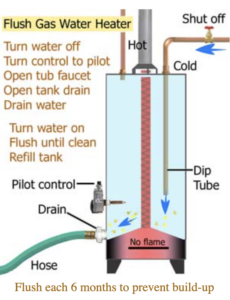
Test the Temperature Pressure Relief (TPR) Valve
The TPR valve is a critical safety feature that releases water if the pressure inside the tank gets too high. Test it periodically by lifting the valve lever to check for smooth operation. If it’s stuck or doesn’t release water, it may need replacement.
Don’t Wait for an Icy Shower to Replace Your Water Heater!
Knowing when to replace your water heater can save you from sudden cold showers, water damage, and high energy bills. By identifying the signs of a failing water heater early, you can plan for a replacement that improves efficiency, safety, and comfort in your home.
If you’ve noticed any of the symptoms above, it’s time to consider a professional inspection or consult a trusted plumbing expert about a new unit. Don’t wait for a breakdown—take proactive steps to keep the hot water flowing smoothly and affordably! Contact us today to schedule an appointment.
